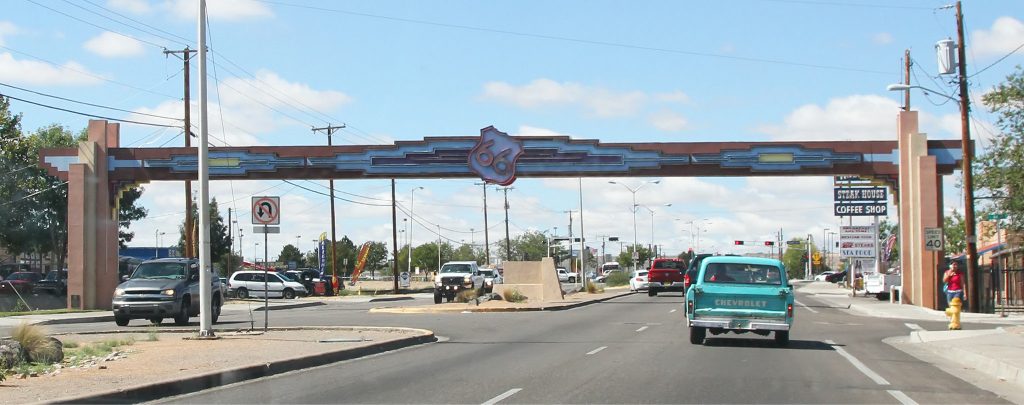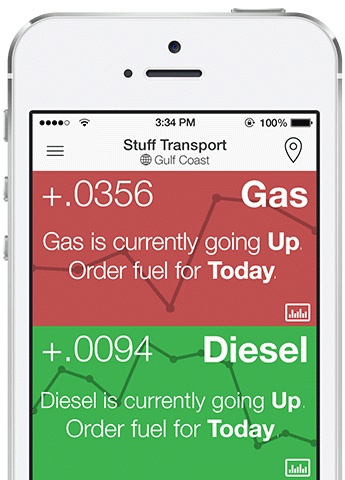“It’s a necessary evil…”
How many times have you said that? I’ve said it, too casually, for any number of life’s little snags. Your laundry, a long flight in the middle seat, replacing a garbage disposal, paying your taxes – we all do these things, because we have to, but that doesn’t mean they’re fun.
Back in the mid-aughts, J.J. Mancini was just learning about the wholesale fuel industry, but from what he was hearing, it didn’t sound fun. Paying for fuel was a necessary evil, a big cost of doing business. To top it off, reliability and transparency were in short supply.
There’s good old fashioned, and bad old fashioned. It seemed like fuel distributors didn’t even care anymore. They just did things the same way their father did them, and his father before them, J.J. says.
He saw three big issues…

Albuquerque, N.M., home of Desert Fuels
Customers never knew how much they would pay for fuel.
You’d get a quote, but when you order, it changes. It’s never communicated until the day you got the invoice. That’s the biggest violation of trust. If we quote you a price, we honor it.
Their competitors would hand out a confusing Excel spreadsheet of prices, and even if you figured it out, the price was often different when your invoice arrived.
Customers often didn’t know exactly when their order would arrive until it showed up.
Communication in the wholesale fuel industry was really terrible. These days, you can order a lightbulb off Amazon, and know when it shipped, where it is each day, and when it will show up at your house. You can order a Dominos pizza and track it from the oven to your front door. Yet you could have no idea where $20,000 worth of fuel was until a truck pulled in.
Loyalty wasn’t rewarded – and distributors often took advantage of loyalty to push up the price.
This one disgusts me. Some people actually think that that’s okay. To me, it was borderline injustice, says J.J.
Because the price wasn’t transparent or consistent, fuel companies could get away with expanding their margin on every invoice. Without better options, customers were left to the mercy of paying up – and for many customers, fuel was one of their business’s biggest costs.
J.J. formed Desert Fuels, and set out to improve the experience of buying fuel.
J.J. is anything but a typical entrepreneur. A child of missionaries who grew up on a Navajo reservation and went to college to be a classical opera singer, he formed his first company out of his side hobby – a web design business, back when that was a new thing. Then his father bought five gas stations, and he started learning about the fuel industry with an outsider’s eyes. Eventually, he formed Desert Fuels and used his technology experience to build a different solution.

Desert Fuels’ iPhone app
These days, Desert Fuels is known for their tech, in particular an app, a simple interface that allows their customers to make orders, see price movement, and track their order – and the truck carrying it – from the time it leaves until it shows up. Desert Fuels also texts customers with load status updates. It’s such a big differentiator that the Desert Fuels website highlights it on their front page and features it throughout their marketing.
Fancy technology wasn’t the goal, though. Desert Fuels didn’t want to have an app just to have an app; it had to solve problems. It had to make the experience of buying fuel easier.
It doesn’t stop there. Their competitors hid market information, didn’t educate their customers, and held their knowledge close to the chest. Desert Fuels puts it all up on their website – and creates tutorials and blogs to educate their customers about the product they’re selling.
We believe that customers that are better educated make smarter decisions. That’s it, J.J. says.
All this has earned Desert Fuels a healthy business – and enthusiastic customers.
We have fans. They rate our drivers, they give us constant feedback – and you know what? I think some of them might actually enjoy buying fuel.
When it came time to finance their growth, J.J. and his team did their research – and found Far West Capital. It was the perfect match.
We like to say that we flip the traditional financing process and start with the person – not their collateral or their FICO score. Sure, we look at that stuff – trust me – but it’s not nearly as important as the conversations we have with the business owner. When J.J called us, Sam Tork – senior vice president and leader of our Dallas office – answered the phone.
By the time they had finished talking, Sam knew this was a client Far West Capital wanted to work with.
They were doing something that was truly new and unique. This technology they’d built – it helped their business as much as their customer. Beyond that, they had values very similar to our own. After one day of talking to him, I knew it wasn’t a matter of whether we’d do this deal; just a matter of how we could best support Desert Fuels.
For J.J., the process transformed yet another necessary evil into a positive experience.
In my experience with banks, when a snag pops up, you’re guilty until proven innocent. Far West Capital’s perspective is the exact opposite. There’s a yes in their heart – they have to prove a no. They’re going to start off by saying yes and find a way to make it happen. That just changes the relationship from a necessary evil to someone who’s actually a partner.
That might just be one of the best compliments we’ve ever received.
Cole Harmonson is the CEO of Far West Capital, a company that funds the goals of high-growth entrepreneurs. Know a great company in need of capital to unleash their potential? Send them here and we’ll give them a call.

